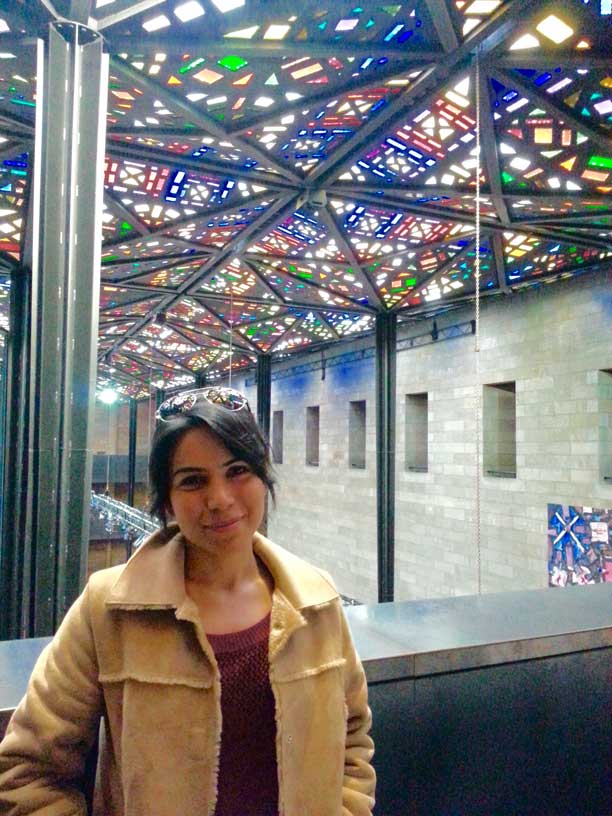Margaret Watson Centenary Travelling Fellowship
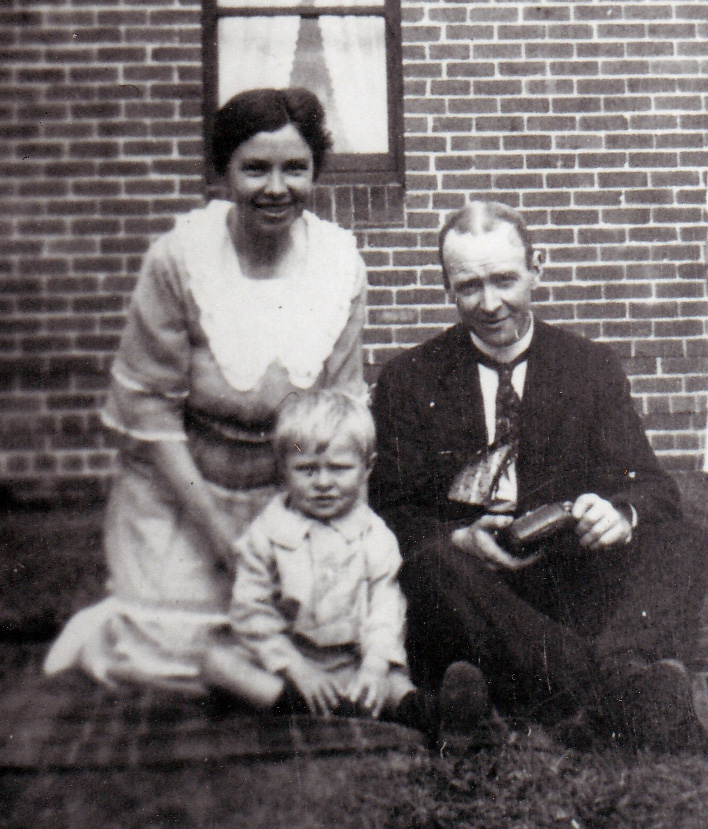
The Margaret Watson Centenary Travelling Fellowship is in memory of Margaret Watson and is to recognise and celebrate the achievements of young female graduates. The ‘centenary’ refers to Miss Watson being required to leave the job that she loved as a teacher at University High School because she was to marry – a practice that continued until 1962 in Victoria, Australia. In the photo above, we see Margaret – mother, graduate and, by then, university tutor – with her son, who later graduated with a degree in medicine from The University of Melbourne.
The Fellowship is awarded every two to four years to a female resident of Graduate House who is enrolled for postgraduate studies in the Arts and Education, with a particular interest in the Classics. The Travelling Fellowship is intended to provide assistance for the recipient to travel to a conference or for field work (e.g., to visit libraries) to assist with their postgraduate studies in these fields.
Amount $2,500
| 2020 Schedule | Applications open | 28th January | ||
| Applications due by 4.00PM | 1st April | |||
| Successful candidate announced | 10th April | |||
| Successful candidate receives fellowship prior to the annual General Meeting | 28th May |
Candidate Eligibility This fellowship is open to Members of The Graduate Union who:
- are in residence at Graduate House at the time of applying for the fellowship and, by 30 June, will have accumulated at least four (4) months of residency;
- are enrolled at a university to undertake a post-graduate degree at a masters or doctoral degree level;
- have not received a Scholarship, Bursary or Fellowship previously from Graduate House;
- are available to receive the Fellowship at the annual General Meeting of the Association; and
- are willing to provide a story for publication in the Melbourne Graduate.
Applications which do not meet all of the above criteria will not be submitted to the selection panel.
Selection Criteria
| Criterion | Basis for rating | Maximum score | |
| Purpose | The funds will be used for travel from and to Australia to attend a conference or to undertake field work activities (e.g., visit university libraries). | 10 | |
| Justification | The funds will help to progress the applicant’s postgraduate studies (for example but not limited to: (a) through inclusion of a needed project component; (b) by increasing the dissemination of research results; (c) by supporting the building of academic networks; and/or (d) through supporting the applicant to complete and publish.) | 10 | |
| Accountability | A budget will show clearly how the funds are to be spent. Quotes and receipts (if available) or realistic estimates will be provided to demonstrate specific purpose expenditure. Funds will be expended on travel costs. | 10 | |
| Professionalism | The submitted documentation is professional, presented clearly and shows attention to detail. The resume describes the applicant’s personal and academic history and demonstrates the applicant’s ability to represent The Graduate Union and the legacy of the Fellowship with dignity and honour. | 10 | |
| Eligibility | The applicant is female, and is enrolled for postgraduate studies in the Arts and Education, with (ideally) a particular interest in the Classics. | 10 | |
Sponsor a Scholarship or Bursary
Find out more information by contacting us by:
Phone: +61 3 9347 3428
Email: admingh@graduatehouse.com.au or visit our sponsorship opportunities page
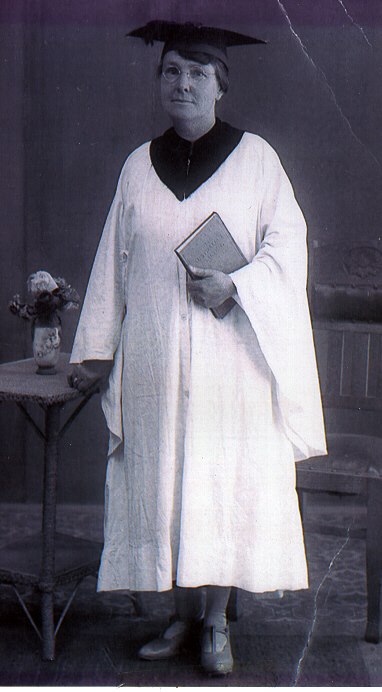
Margaret Watson
Margaret Watson trained as a Primary School Teacher and was appointed as a foundation staff member of University High in Melbourne in 1910 after completing the new two year Diploma of Education, which had been introduced as the qualification for Secondary School teachers, and included some subjects towards an Arts degree.
While teaching at University High, Margaret completed the extra subjects to graduate with a Bachelor of Arts in 1915. On marrying, as was the requirement of that era, Margaret left her teaching position in 1915 and became a tutor in Classics at The University of Melbourne.
Alice Hoy, who taught with Margaret, wrote in the 1960 history of University High: “Miss Watson looked, as she certainly was, a friendly, jolly person“.
She was described as a vigorous teacher with a robust sense of humor who could make Latin as well as Geography interesting. Miss Watson was said to have a very warm heart and when she left the school late in 1915 to be married she took many lasting friendships with her. For many of her former pupils and staff colleagues her house in Elwood, the friendly doors of which were always open, became a real home for them too.
MARGARET WATSON CENTENARY FELLOWSHIP AWARDEES
2018
Juanjuan Wu
Juanjuan was born and raised in a small, peaceful but poor village surrounded by mountains in a remote and rural town of Hunan, a province located in the middle reach of Yangtze River in southern central China. “What lies beyond that mountain?” When a child, with this question, she pestered her grandma, the only living grandparent who looked after her and her younger sister when their semi-illiterate parents were busy with ploughing field, growing rice, doing all kinds of odd jobs and manual labours to make ends meet. “Another mountain, I guess.” Having never been at the other side of those mountains, her grandma disappointed her once again. “A bigger world!” she would later tell herself, “a better world.”
Read more →
Juanjuan’s world opened up slightly when at age of 12 she went to study at the middle school in the town located at the other side of her childhood mountains. A year later, she started her first English lesson and was fascinated by it. At age 15, she was accepted into the county’s best high school, where, for the first time, she read a piece of classic English literature, Jane Eyre, in its bilingual English and Chinese version, which opened a new world for her and stirred up her passion to read more English novels. She studied very hard, acutely aware that a broader world would be here for her to see if she could go to a good university. “A new life, not that of my parents and grandparents”, yet so much depends on a high score in Gaokao (the national higher education entrance examination).
“You are not a boy, you should work harder and go to university. No one would then dare to look down upon us!” Her father would try to encourage her in this way. She understood the toughness of being a father of two girls in that backward village where births of boys brought honour, pride and future, while girls shame, guilt and sense of inferiority. The stress built up. She did not score as high as expected in Gaokao but well enough to go to the university. She chose to escape the village, the town and the county, enrolling in Shandong Normal University in Jinan, a city some 1,400 kilometres northeast up her birthplace. She became her village’s first child to go to the university.
Under the advice of her high school teacher, she chose English as her major in the hope of landing a well-paid job after graduation. Throughout her four-year studies, she had been enthralled by those new worlds opened up by English novels and poetry. Instead of looking for jobs, she decided to take another important examination to pursue postgraduate studies in English literature. In September 2013, she was admitted into the Master program of English Literature at Fudan University in Shanghai, one of the most prestigious universities in China.
During her MA, she continued studying English language and literature, attending lectures, presenting papers in conferences, working as teaching assistant and research assistant, doing a research project about Aphra Behn, one of the first English women to earn a living by the pen, and doing research for her thesis on “Celebrating Spinsterhood in Barbara Pym’s Novels”. Meanwhile, she worked as a freelance translator for the university and publishing houses in Shanghai and published articles and books translated into Chinese. In June 2016, she was awarded the Master of Arts of English Literature and found a position at a prestigious publishing house as a full-time editor. However, her enthusiasm in English women’s writing had never been dwindled.
When working as an editor, she was encouraged to participate in a publishing project about foreign travellers in China. She gleaned fascinating narratives by English women journeyed to China from 1860s to 1930s. Impressed by their courage to challenge the rigid gender binary, transgress confining boundaries and venture out into the unknown world, she decided to apply for a PhD programme at an overseas university, researching on writings by those wonderful women whose sympathy and friendship towards the native Chinese made her deeply touched. She applied to the University of Melbourne and very luckily got the Melbourne Research Scholarship (MRS) to come here. She commenced her PhD on February 27th, 2017, in English and Theatre Studies, in the School of Culture and Communication.
Thanks to the marvellous research supervision from Prof. Deirdre Coleman and Dr. Grace Moore, her research project began to take shape. Examining writings by six women writers who travelled to China from perspectives of emotion and affect studies, she is making an interdisciplinary dive into the past to retrieve women’s achievements in bringing the world together as a transnational community. She hopes to present a picture in which Victorian women travellers articulate, bring up and embody a cosmopolitan outlook which does not stop with nationalism and imperialism, but also encompasses all humanities across racial boundaries.
She had her candidature confirmed on December 19th last year. This semester she has been shadowing one of the most experienced tutors in the school’s first-year programme, with a view to tutoring next year. She is working on papers for conferences, one coming up in June in Perth on ‘photography and emotion in Isabella Bird’s travel narratives in China’, one in July in Canberra on ‘Mary Gaunt and Victorian cosmopolitanism’ and one in September in Croatia. She is also planning to go to the University of Cambridge, the University of Oxford and the University of Edinburgh in September to consult manuscripts and unpublished letters by three women travellers she is looking at.
She joined Graduate House on May 17th last year. Lodging here is becoming her most enriching and rewarding experience.
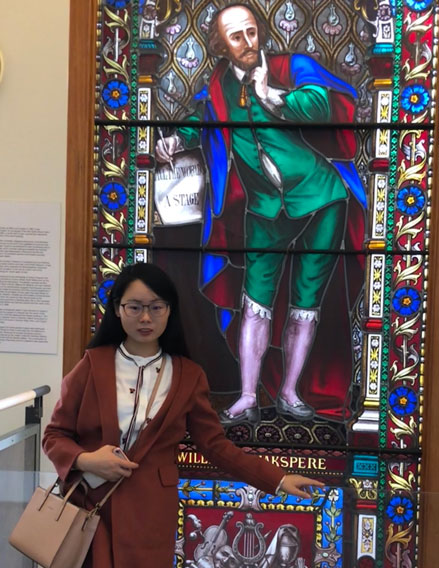
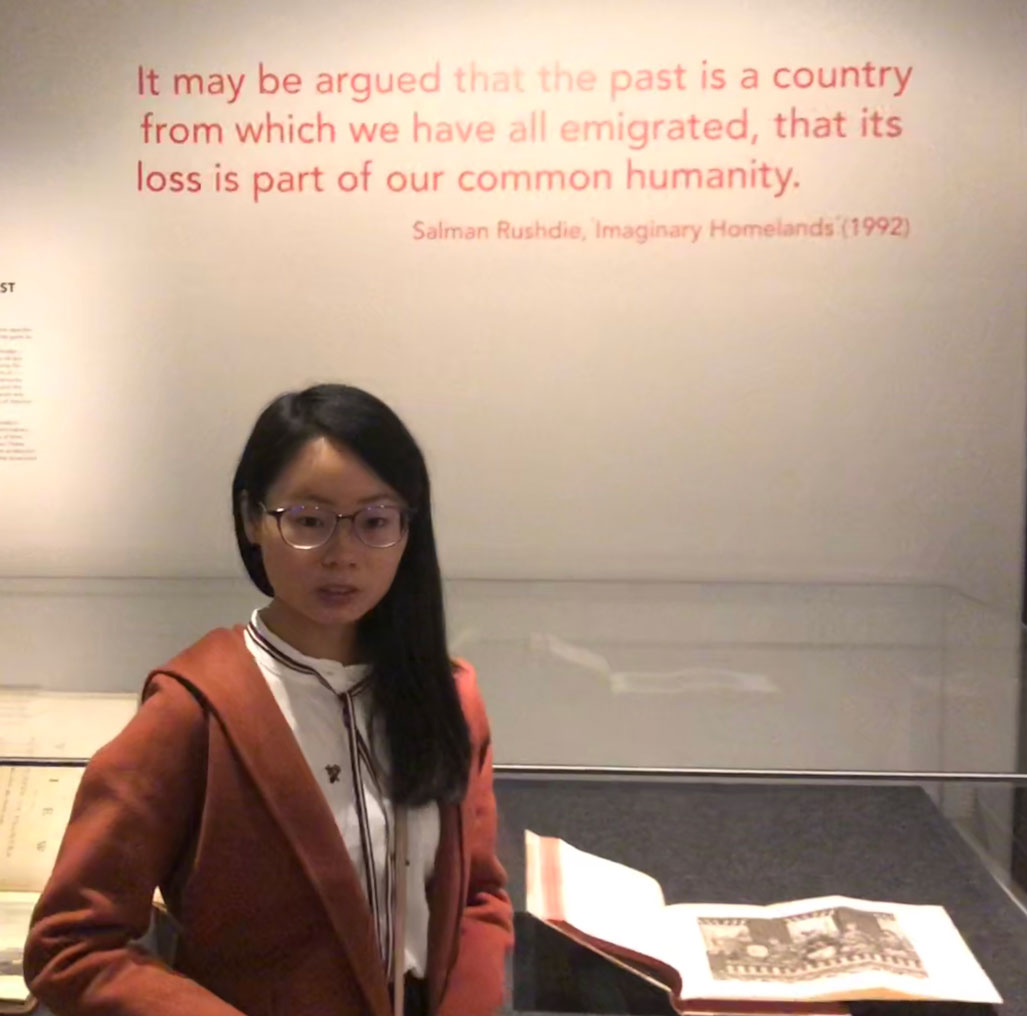
2015
Parisa Shiran
Miss Shiran has a Bachelor (2010) and Master (2012) degrees in English Literature from the University of Isfahan, Iran. Her doctoral research, at the time of this Fellowship, being undertaken in the School of Culture and Communication, Faculty of Arts, The University of Melbourne, was an interdisciplinary study of culturally different women writers within a comparative dialogue for arriving at a philosophy of women’s literature.
Read more →
You see things; you say, ‘Why?’ But I dream of things that never were; and I say ‘Why not?”, George Bernard Shaw thus said, reflecting the hope which has always been blazing in my heart with which I fought through my life and climbed up the ladder of success.
Though deaths and pains were not my choices, to live was a decision I made early in my life when I found myself deprived of the unparalleled love and welfare that the presence of my parents could have guaranteed.
No more than five years old, I lost my father in an accident. My mother, however, died another death when she abandoned me to time, destiny and my grandparents whose affectionate nurturing assured my growth and progress.
The desire to unfetter myself from the chains of a marginalized social status as an orphan encouraged me to become educated. Literature, stories and their deep entwinement with life and reality enthralled me and made me determined to write the story of my life the way I wanted.
Parisa kindly contributed this opening extract, and the content that ensues is from an interview between Parisa and Tina Hasiotis, our Graduate House roving reporter.
Born in Isfahan, Iran, Parisa Shiran lost her parents at the age of 5 and was raised by her grandparents. From the time she started learning and reading her grandfather began to instill in her an appreciation and interest in literature by letting her read poems to him. “He loved poems and had a story-telling nature, and loved telling stories of his life and his past, and stories that he had heard,” said Parisa.
Greatly inspired by her grandfather, Parisa started learning English when she was 9 as her Grandad was always emphasising that English is an international language and it needs to be learned as it can open more promising pathways of success in the future. Parisa’s Grandad also always had a strong emphasis on education, “he always emphasised that no matter what happens in life you have to put education as the most basic activity in your life. These ideas are the most prominent ideas in my mind and they still shape how I think and how I go through life,” said Parisa.
With this powerful influence from her Grandfather, Parisa then decided that this would be her pathway for education. When Parisa commenced her tertiary education, she sat for a Bachelor of English Language and Literature at the University of Isfahan in Iran. Throughout her four-year study, Parisa remained a top student and was then awarded a Master of Arts (MA) of English literature at her university.
During her MA, Parisa continued studying English language and literature while simultaneously working as a freelance translator for university students working in various fields and required translation from English to Persian. Parisa was then immersed in literature and English language, confidence in her craft, building.
“During the MA, I also tried to attend workshops and conferences. At one conference at The University of Tehran I presented my work, and a couple of faculty members from another university who had attended my presentation, approached me and asked me to start teaching at their English department,” enthused Parisa.
Parisa’s teaching career then flourished: she commenced teaching English literature at Shahrekord University (an hour’s distance from Isfahan). She also started teaching at an Institute of Higher Education in Isfahan. She taught English prose, poetry, and developed curriculum around core readings including a wide variety of figures from 18th Century literature to 20th Century figures such as T. S. Eliot and Virginia Woolf.
These activities propelled Parisa’s interest in further research, as during this time she was also working on a research project that she wanted to do for her PhD and decided to apply to an overseas university. “I applied to Melbourne and got a scholarship which enabled me to come here. I received the International Postgraduate Research Scholarship (IPRS) and Australian Postgraduate Award (APA). Today I am completing my PhD in English and Theatre Studies, in the School of Culture and Communication,” said Parisa.
Her research project is a feminist philosophical study of a group of women writers and is examining women’s literature from a feminist philosophical perspective. “I would like to arrive at a theoretical account of women’s literature – I want to see whether I can come to a theory or a philosophy that would show how gender, sexuality and culture form the literature of women,” said Parisa.
Her work is proving successful as on July 15th, she passed her PhD confirmation (converts PhD student to PhD candidate) and she will soon commence tutoring in English and Theatre studies. “I am excited about tutoring this semester and I will also target conferences at the University of New South Wales (modernist studies). I am also aiming to go to the University of Maryland to seek out unpublished papers and manuscripts by one of the female writers I am researching,” said Parisa.
While Parisa has only been at Graduate House since July last year, she has developed a certain fondness for Graduate House. “I like it here! At dinner I can sit with people from all over the world and different cultures – it’s very exciting,” enthused Parisa.
Miss Shiran brings an important and much needed perspective and influence on literature of importance for both women and men globally. This academic and research excellence has been recognised by the Australian government which has given her an International Postgraduate Research Scholarship, as well as an Australian Postgraduate Award. Also in recognition of her initiative, professionalism and research/academic excellence, Miss Shiran was presented with the prestigious Graduate House Research Acknowledgment Award in May 2015. Following this, in December 2015, she was presented with this inaugural Margaret Watson Centenary Travelling Fellowship to support her undertaking coursework and research in comparative literature at the University of Maryland, where she will also be visiting the archive of a woman writer she is researching as part of her PhD project.

